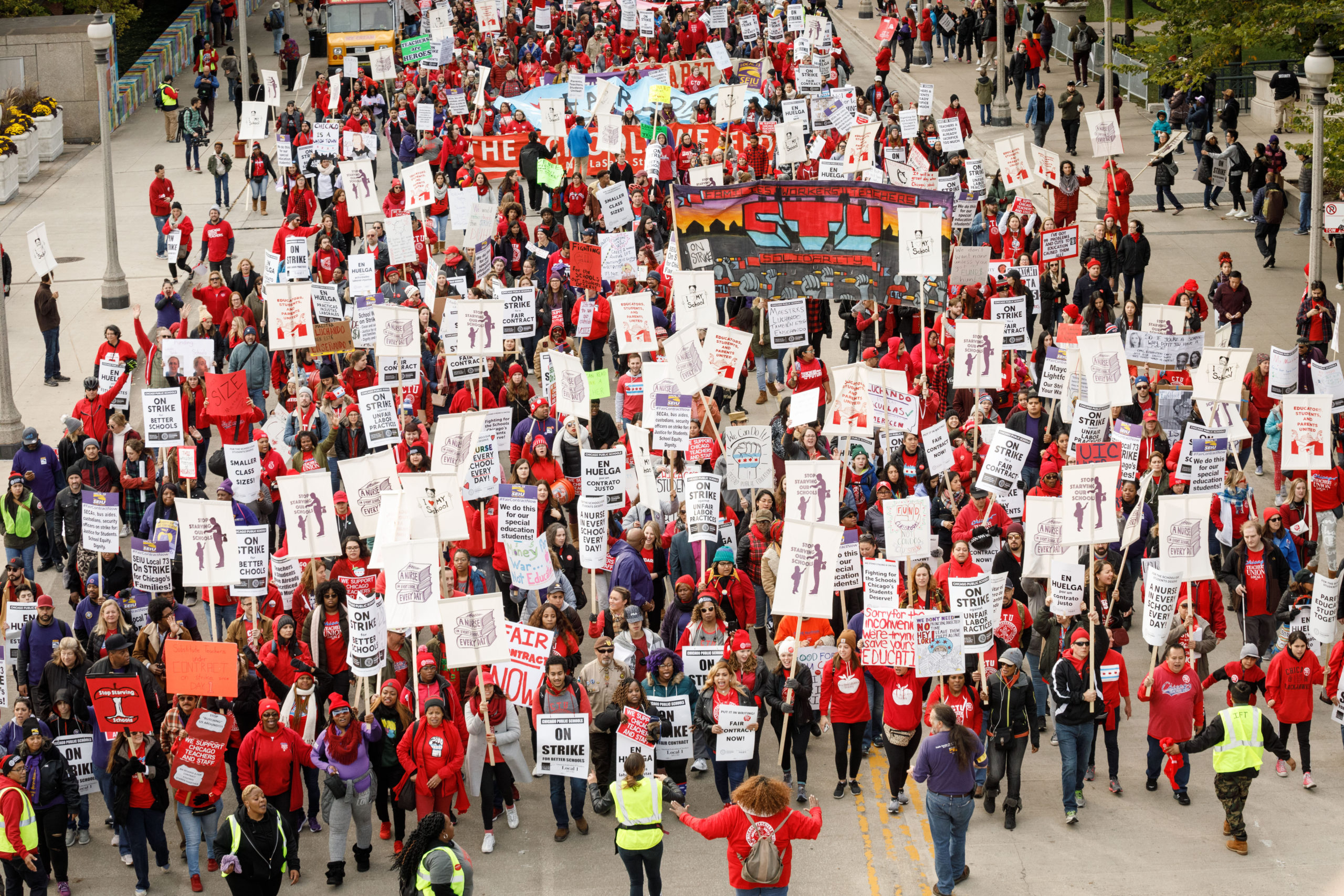The following is an excerpt from our Saturday email, which includes our musings on the latest developments impacting public employees, links to that week’s labor news, and a collection of whimsical reads for your weekend. If you’d like to receive our weekly email, you can use the sign-up form at the bottom of this page. We promise to respect your inbox, and we will never share your email address.
Union leaders are in full celebration mode over “Striketober” – their cutesy term for the series of strikes happening around the country at places like John Deere, Kellogg’s, and Saint Vincent Hospital.
Buy why are labor officials cheering about a breakdown in the collective bargaining process, that hurts workers and their families?
“Striketober” is now a hashtag and a headline . Members of Congress are tweeting it out, hoping to capitalize on labor’s excitement over the wave of strikes. The AFL-CIO, urging the strikes to continue into November, asked in a Twitter poll if November should be branded “Strikesgiving” or Strikevember”—Strikesgiving won.
In a recent Washington Post op-ed, new AFL-CIO President Liz Schuler called striking a “healthy response” to workplace issues. Another prominent labor journalist called the wave of strikes a “thrilling development.”
But strikes are not thrilling for the workers who are forced to go days or weeks with little to no pay, most of whom would rather be working and earning a living. Strikes indicate a failure shared by the parties at the bargaining table–a failure shared by union officials and employers—to reach an agreement that works for employees.
John Deere employees have expressed frustration with the $275 a week they are supposed to receive from the United Auto Workers union as they walk the picket lines, which is less than minimum wage. Earlier this week, reports surfaced saying they had not yet received any strike pay.
During a strike, union officials continue to receive their full salaries from the unions they work for even as workers go without pay.
A tight labor market, worker shortages, and frustrations over the response to Covid-19, including vaccine mandates, are fueling some of the walkouts, along with traditional concerns about pay and working conditions.
Those are all issues that labor and employers should be working to find common ground on at the negotiating table. Labor’s goal shouldn’t be to find fuel for more strikes, it should be to make things better so employees don’t have to strike, thereby risking their livelihood.
Whether this series of strikes were justified or not, cheering strikes on and calling for more strikes seems deeply insensitive.
